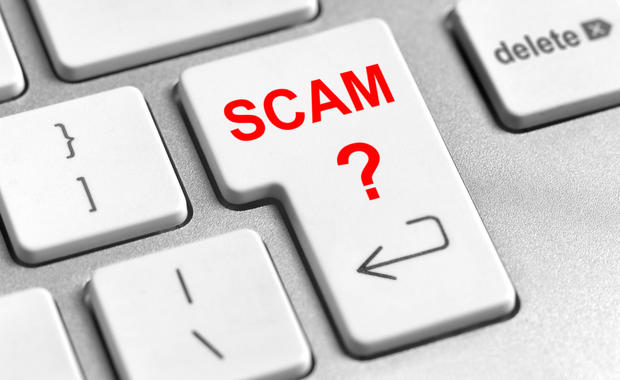Gold investing red flags to know
Gold is a popular investment right now, and for good reason. It offers an array of benefits, from portfolio diversification to protection from inflation. And when economic times are tough — as they've been for the past few years — investors are particularly interested in the stability and safety gold provides.
Unfortunately, as with many financial products, bad actors are all too happy to take advantage of this demand. And since gold generally isn't as well-known an investment as things like stocks, it can be easy for investors to fall prey to their schemes.
If you're thinking of investing in gold, it's crucial to be aware of potential red flags that could indicate a scam or bad investment. Below, we'll outline some of the most common ones to know and give you tips on how to spot them.
Learn about legitimate gold investing by requesting a free information kit here.
Gold investing red flags to know
Keep an eye out for the following to avoid losing your investment dollars.
Unrealistic promises
If a seller promises returns that sound too good to be true, assume that they are. For example, if someone claims you can make a 100% return on your investment in just a few months, you should be skeptical.
Gold is a solid long-term investment, not a get-rich-quick scheme. It's a relatively stable asset, and its price doesn't fluctuate as much as other investments. While it's possible to make a good profit by buying low and selling high, you shouldn't expect to get rich overnight.
Get a free investors kit here to find out how to invest in gold smartly.
High-pressure sales tactics
If a seller is trying to rush you into making a decision, or if they warn you'll miss out if you don't buy right away, that's a sign they're not acting in your best interest. Good sellers will give you the time and information you need to make an informed decision. Never give in to pressure to buy on the spot.
Lack of transparency
Before investing in any asset, you should have a clear understanding of what you're buying and what it's worth. If a seller is reluctant to provide information or gives vague answers, look elsewhere.
Reputable dealers should be open and transparent about the products they're selling and their pricing structure. Be wary of sellers who tack on additional fees or charges that aren't disclosed upfront. This could include inflated shipping costs, storage fees or commissions.
Always ask questions and do your due diligence before making an investment.
Dubious credentials
Finally, it's important to make sure you're buying from a reputable seller regulated by the appropriate authorities. Unregulated sellers may not be held to the same standards as their regulated counterparts, and they may be more likely to engage in fraudulent behavior.
So, check the seller's credentials and make sure they have a good reputation before you invest your money. For gold dealers, you can check your state's regulatory agency and look up reviews on sites like Trustpilot. For investment and other financial professionals, you can check their license status and background through sites like the SEC and FINRA.
How to avoid gold investing scams
In addition to knowing the red flags listed above, you can also take these steps to stay away from bad gold investments.
- Do your research: Look up current gold prices and be wary of any seller offering you an investment for less. Legitimate sellers will sell at or slightly above spot price. Similarly, a seller charging notably high prices may be trying to exploit your desire to buy.
- Don't respond to unsolicited communications: If a seller you've never contacted reaches out to you first, don't respond. Legitimate sellers don't cold-call (or cold-email) random investors.
- Look for suspicious details: Scammers are often careless. If you spot things like poor grammar, typos or an odd email address, be on alert. This is a good sign you may be dealing with a scammer.
- Avoid rare coins: Physical gold isn't the best way to go for many investors, but it's still a viable option that can pay off. However, if you choose to go this route, stick to traditional coins and bars. It's all too easy for scammers to overhype the value of a "collectible coin" and cash in on buyers' eagerness to get in on a unique opportunity.
- Trust your gut: There are plenty of legitimate avenues to invest in gold. If something feels "off" about a potential transaction, listen to your instincts and find a different opportunity.
Ready to invest in gold? Get started with this free investment guide.
The bottom line
Investing in gold can be a smart move, but it's essential to protect yourself from those looking to take advantage of you.
Always do your due diligence, compare prices across multiple dealers and choose a reputable company to invest with. By staying informed and vigilant, you can enjoy the benefits of gold investing and protect your hard-earned money.




